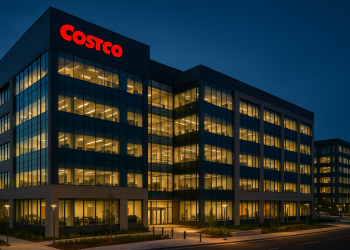No products in the cart.
The UK’s Immigration Shift: Chefs Surpass IT Professionals in UK Work Visas
Chefs are now receiving more skilled worker visas than IT professionals in the UK, signaling a shift in immigration priorities and labor market needs.
The United Kingdom, known for its dynamic and evolving immigration policies, has recently exhibited a significant shift in the types of skilled worker visas being issued. Chefs Surpass IT professionals in UK Work Visas as the top recipients of these visas, reflecting changing priorities in the labor market and the broader implications for the UK’s economy and immigration landscape. This trend highlights the country’s growing demand for culinary expertise and the challenges faced by the tech industry in securing skilled foreign labor.
The Surge in Chef Visas
Recent data from the UK Home Office indicates a marked increase in the number of skilled worker visas issued to chefs. In the first quarter of 2024, visas for chefs surged by 54% compared to the previous year. This rise has been driven predominantly by migrants from South Asia, with Indian chefs making up 25% of these visa recipients, followed closely by chefs from Bangladesh and Pakistan. This shift has been attributed to the UK’s hospitality sector’s urgent need for skilled culinary professionals to address labor shortages.
Decline in IT Professional Visas
Contrastingly, the number of visas issued to IT professionals has seen a dramatic decrease. In the same period, visas for programmers and software developers fell by more than 50%. This decline reflects several factors, including increased domestic training programs, shifts in industry demands, and tighter immigration controls aimed at balancing the labor market needs with public concerns about high levels of immigration.
Economic and Sectoral Implications
The shift towards issuing more visas to chefs and fewer to IT professionals has significant economic and sectoral implications. The hospitality industry, which has faced acute labor shortages exacerbated by Brexit and the COVID-19 pandemic, benefits from this influx of skilled culinary workers. These professionals are essential in maintaining the UK’s reputation as a global gastronomic hub, contributing to the cultural diversity and economic vitality of the food and hospitality sector.
 Digital Magazines
Digital MagazinesOctober 2020
In This Issue of Career Ahead – October 2020: CA News Desk Artificial IntelligenceGoogle For Startups India: AI Skilling for…
Read More →These professionals are essential in maintaining the UK’s reputation as a global gastronomic hub, contributing to the cultural diversity and economic vitality of the food and hospitality sector.
On the other hand, the tech industry, which has been a cornerstone of the UK’s economic growth, faces challenges in maintaining its competitive edge. The reduction in skilled IT professionals could slow down innovation and digital transformation efforts, potentially impacting the UK’s position as a leader in technology and digital services.
Immigration Policy Changes
The UK’s immigration policies have undergone significant changes in recent years. New salary thresholds have been introduced, requiring skilled workers to earn a minimum annual salary of £29,000 to qualify for a visa. This change aims to ensure that incoming workers contribute economically and do not become a burden on public resources. However, it also means that roles traditionally lower-paid, such as those in the culinary sector, might struggle to meet these requirements without adjustments.
The government has also announced plans to introduce new caps on work and family visas, further tightening immigration controls. These measures are part of a broader strategy to manage immigration levels while addressing labor shortages in critical sectors like hospitality. The emphasis on attracting skilled chefs highlights the government’s recognition of the hospitality sector’s importance to the UK economy and its cultural fabric.
Industry Response and Adaptation
The hospitality industry’s response to these changes has been proactive. Employers are increasingly seeking sponsorship licenses to recruit chefs from abroad, understanding the need to comply with stringent immigration requirements. The cost of sponsorship, including fees for certificates of sponsorship and the Immigration Skills Charge, is seen as a necessary investment to address labor shortages and ensure the continued success of their businesses.
 Artificial Intelligence
Artificial IntelligenceIIT Delhi BTech Placement Trends: Key Insights from 2025
IIT Delhi's BTech placement data reveals significant trends for graduates entering the tech workforce in 2025.
Read More →Moreover, the industry is focusing on training and upskilling domestic workers to reduce dependency on foreign labor in the long term. Initiatives aimed at attracting young people to culinary careers and providing comprehensive training programs are crucial in creating a sustainable workforce for the future.
Broader Implications for Immigration Trends
This shift in immigration trends reflects broader global dynamics. As countries adapt to changing economic conditions and labor market needs, immigration policies are increasingly being tailored to attract specific skills that are in high demand. The UK’s focus on culinary skills over IT expertise may be indicative of similar trends in other developed nations facing labor shortages in hospitality and other essential services.
Initiatives aimed at attracting young people to culinary careers and providing comprehensive training programs are crucial in creating a sustainable workforce for the future.
For the tech industry, this trend underscores the importance of investing in domestic education and training programs to build a robust pipeline of skilled workers. Governments and businesses alike must collaborate to create environments that foster innovation and provide opportunities for both local and international talent.
The UK’s immigration landscape is undergoing significant changes, with chefs now receiving more skilled worker visas than IT professionals. This trend highlights the evolving priorities in the labor market and the broader economic implications for the country. While the hospitality sector benefits from an influx of skilled culinary professionals, the tech industry must navigate the challenges posed by reduced access to foreign talent. As the UK continues to adapt its immigration policies, the focus will likely remain on balancing economic needs with public concerns, ensuring that the country remains a vibrant and dynamic destination for skilled workers from around the world.
 AI
AIRevolutionizing Content: PixVerse’s Game-Changing AI GIF Tool
PixVerse has launched an advanced AI GIF generation tool, transforming content creation in 2025. Discover its implications for the digital…
Read More →










